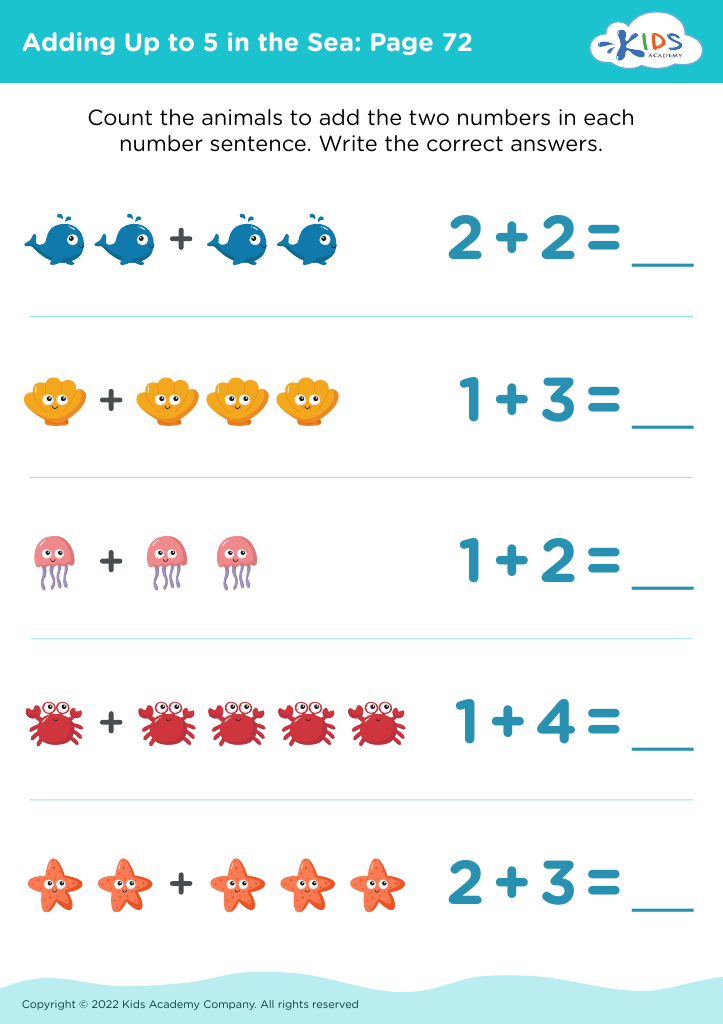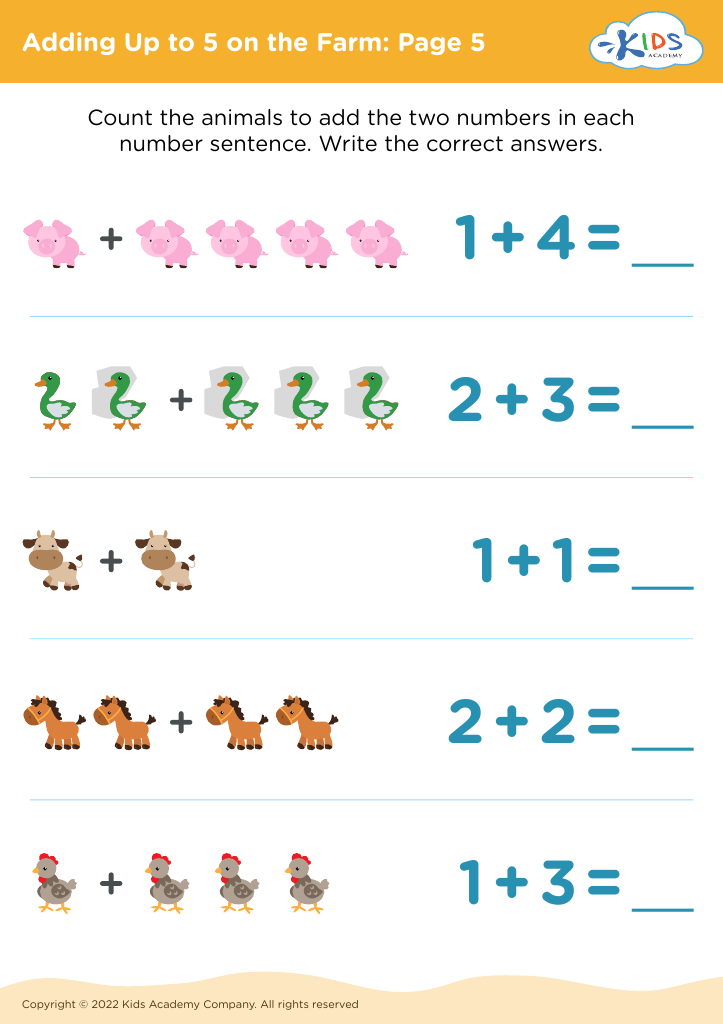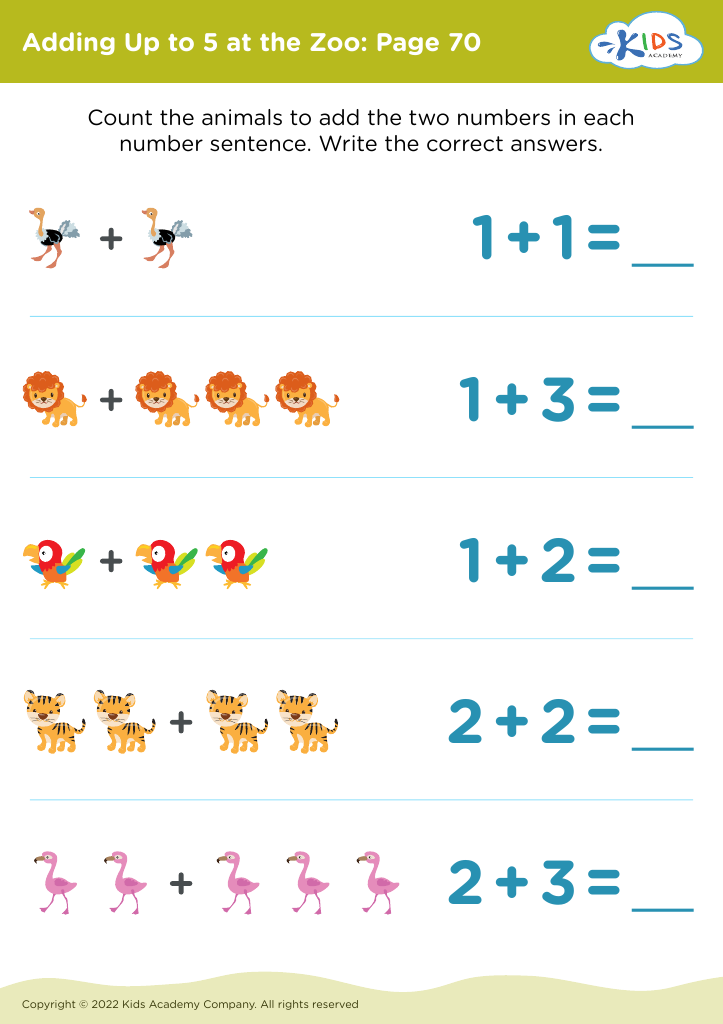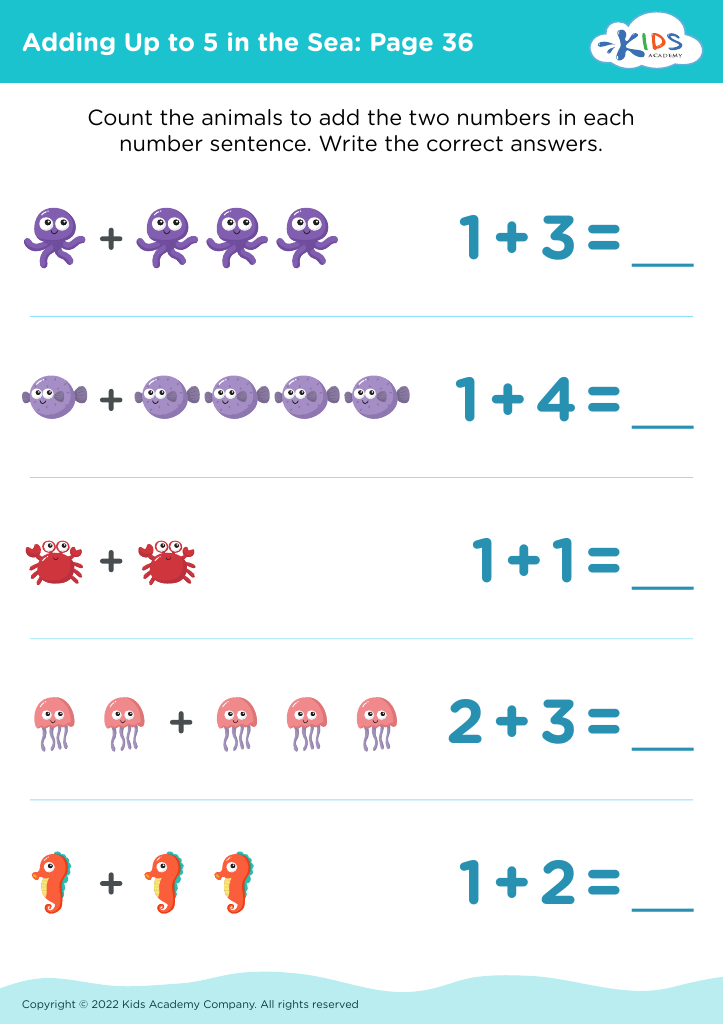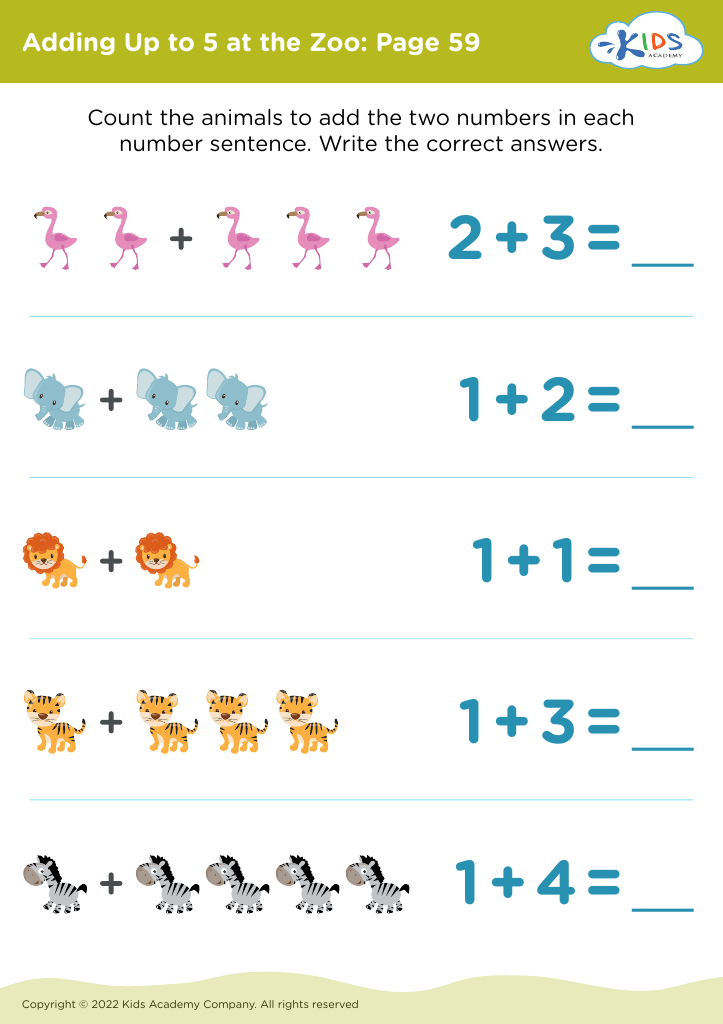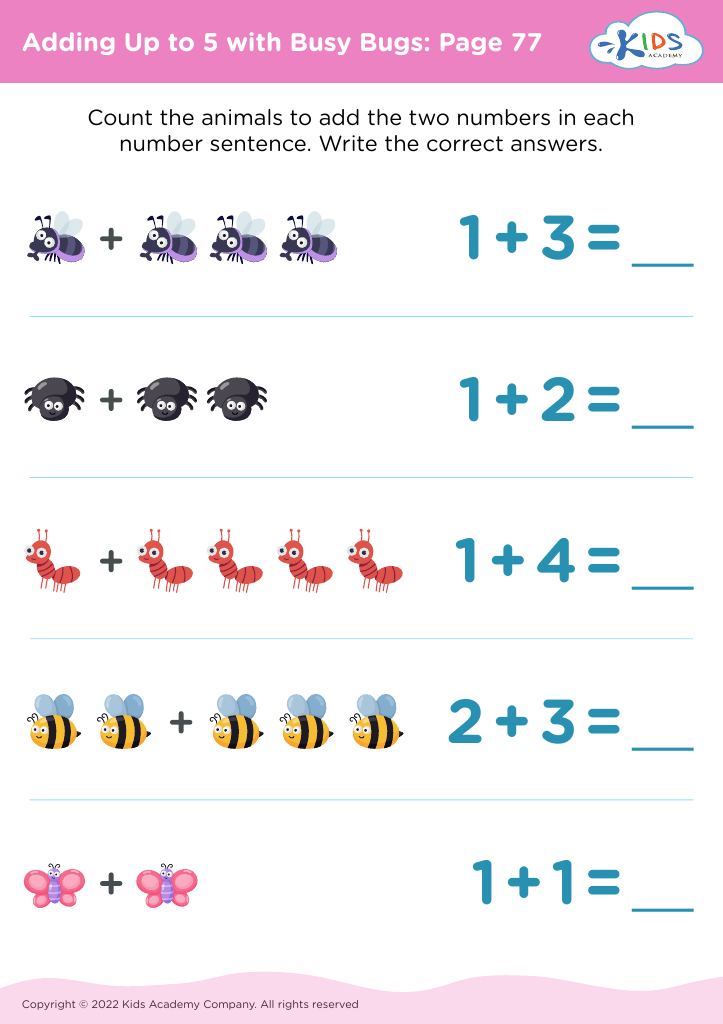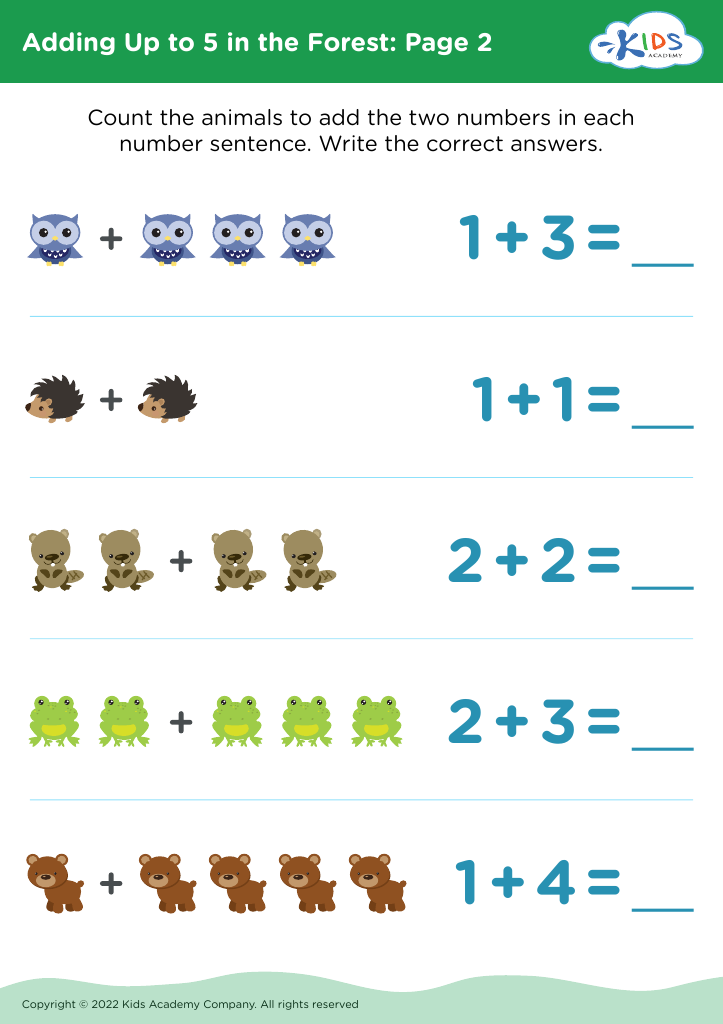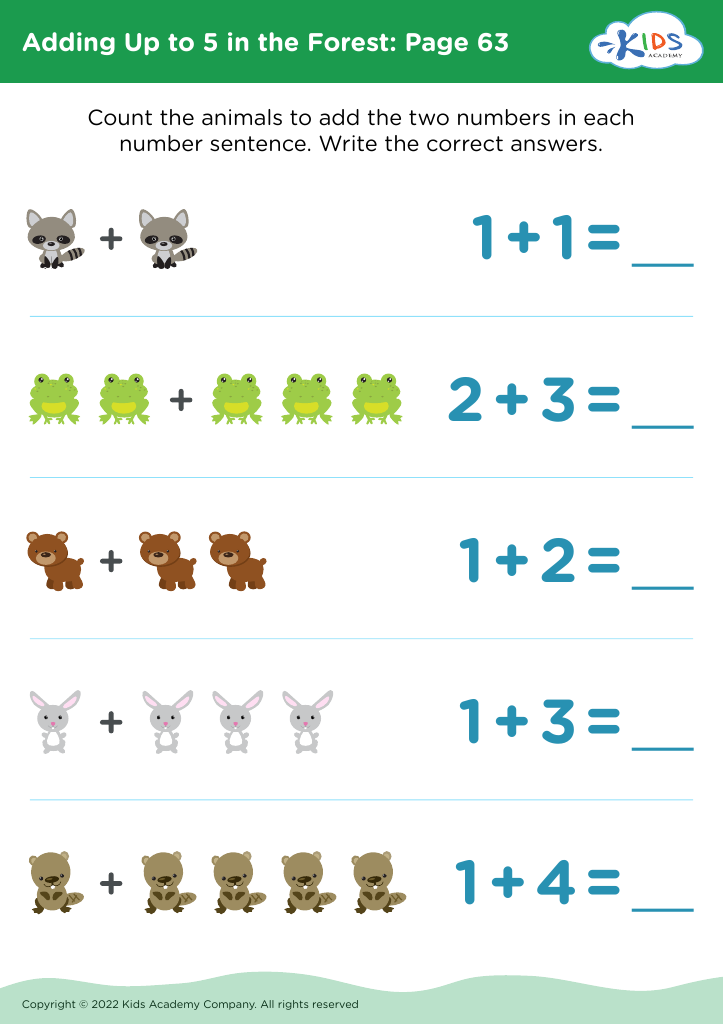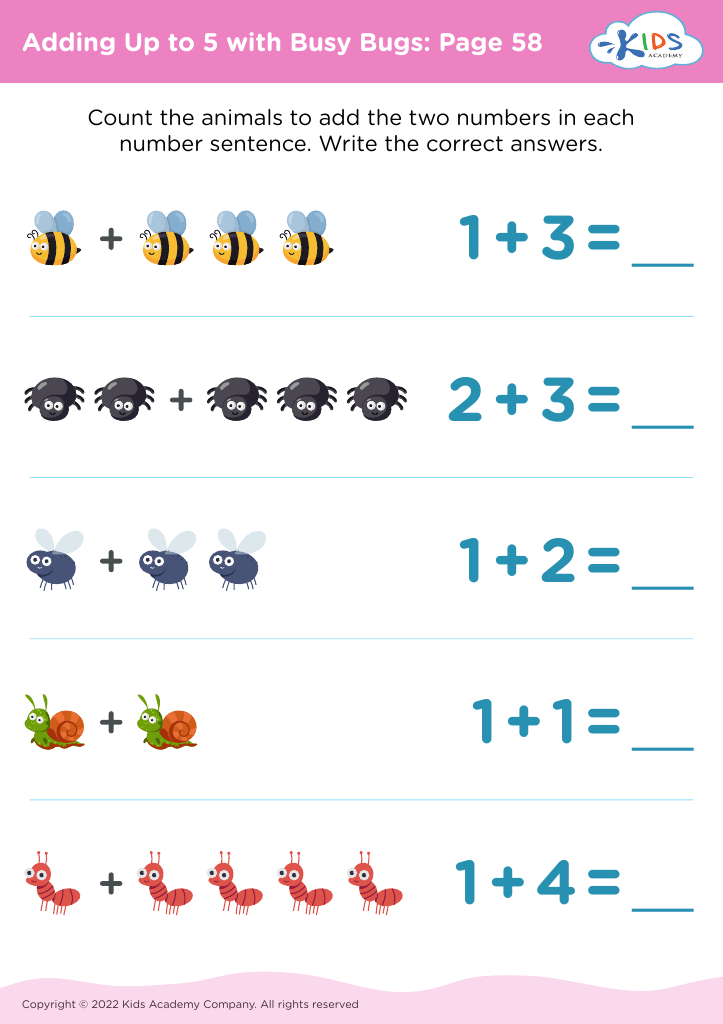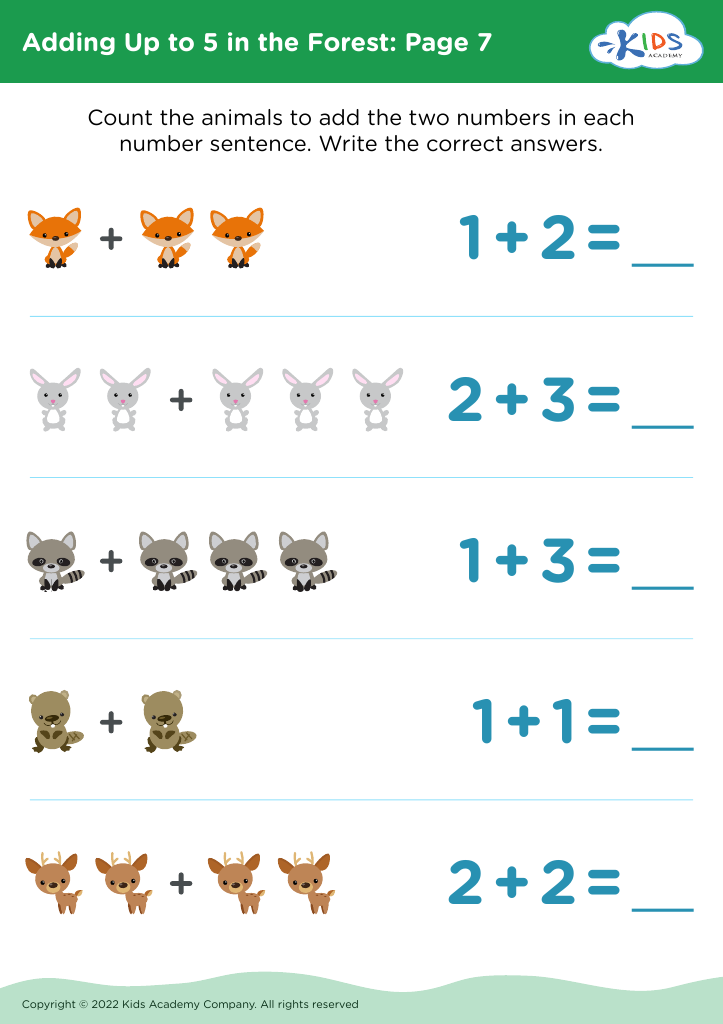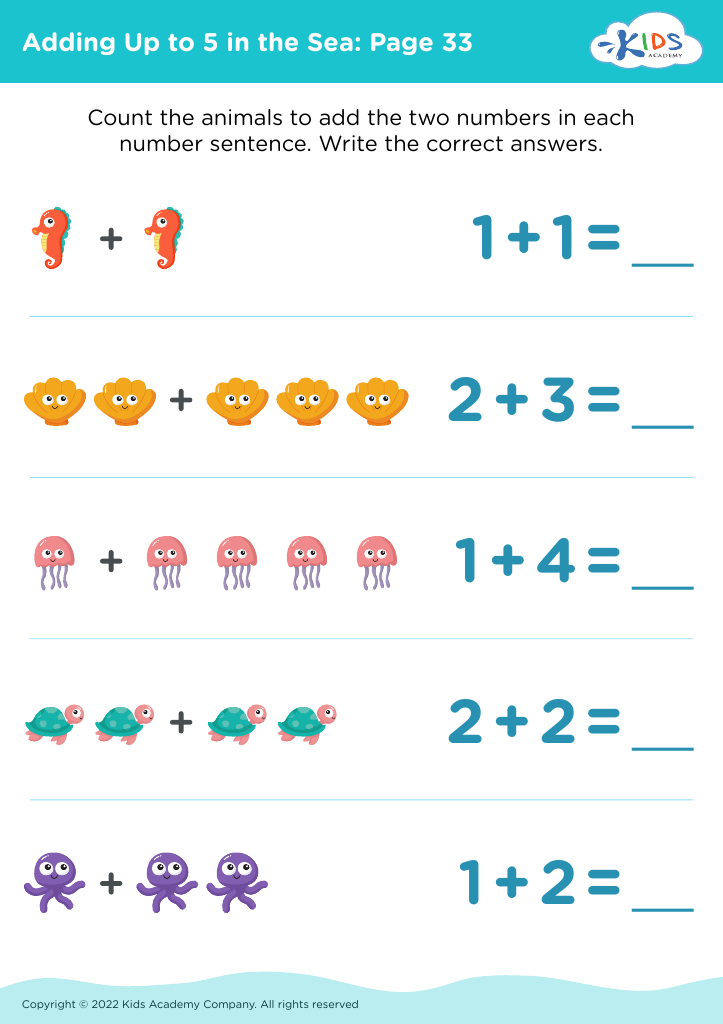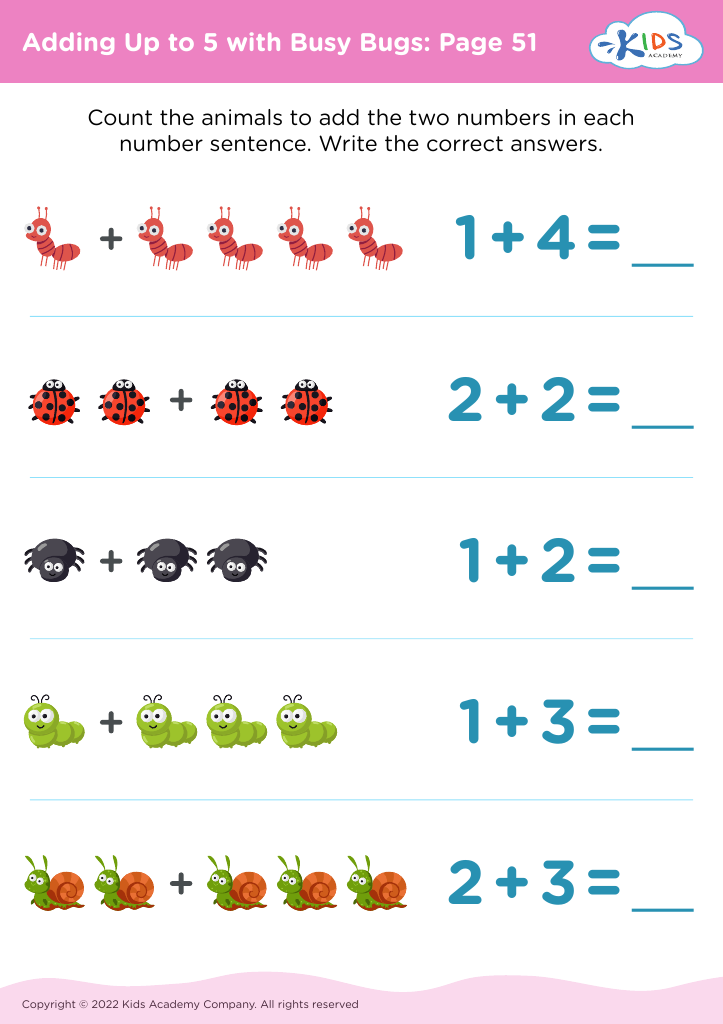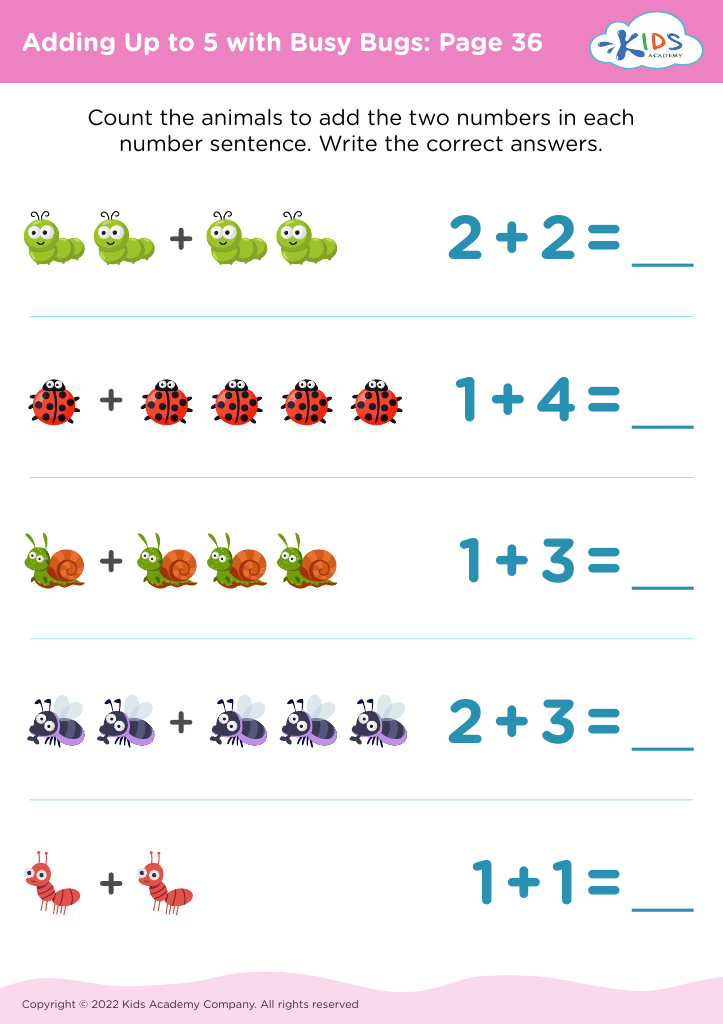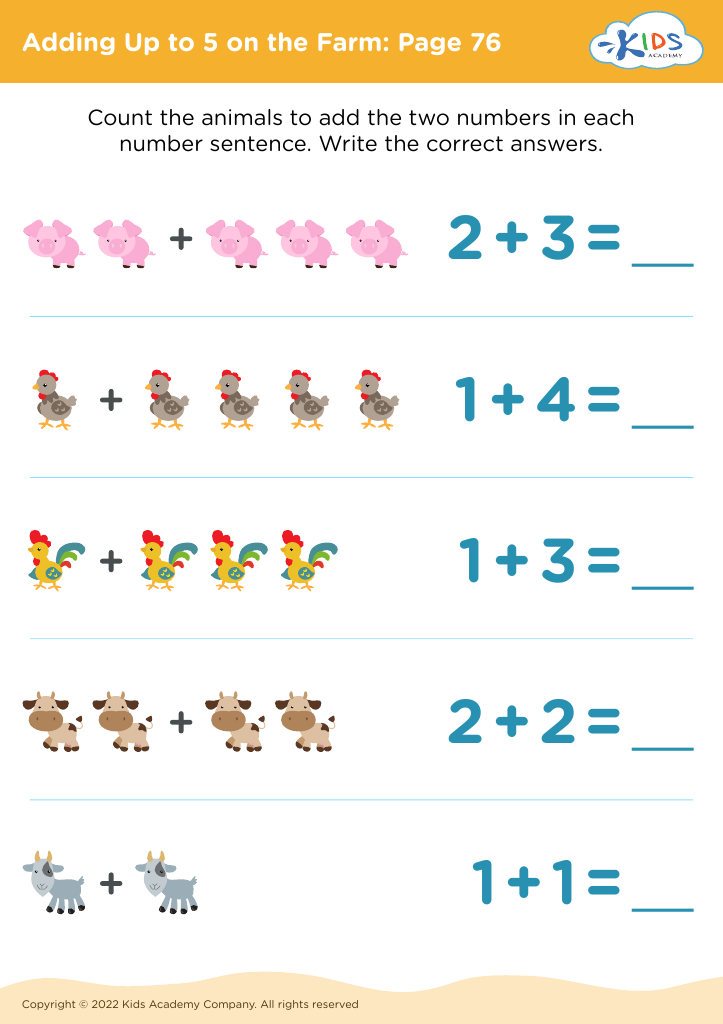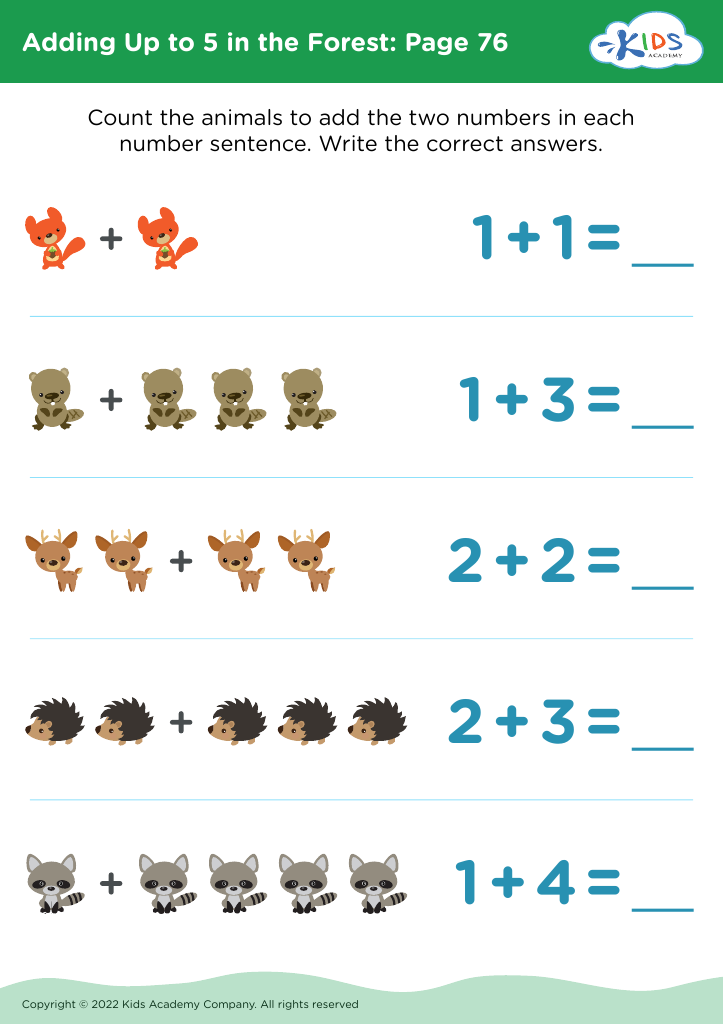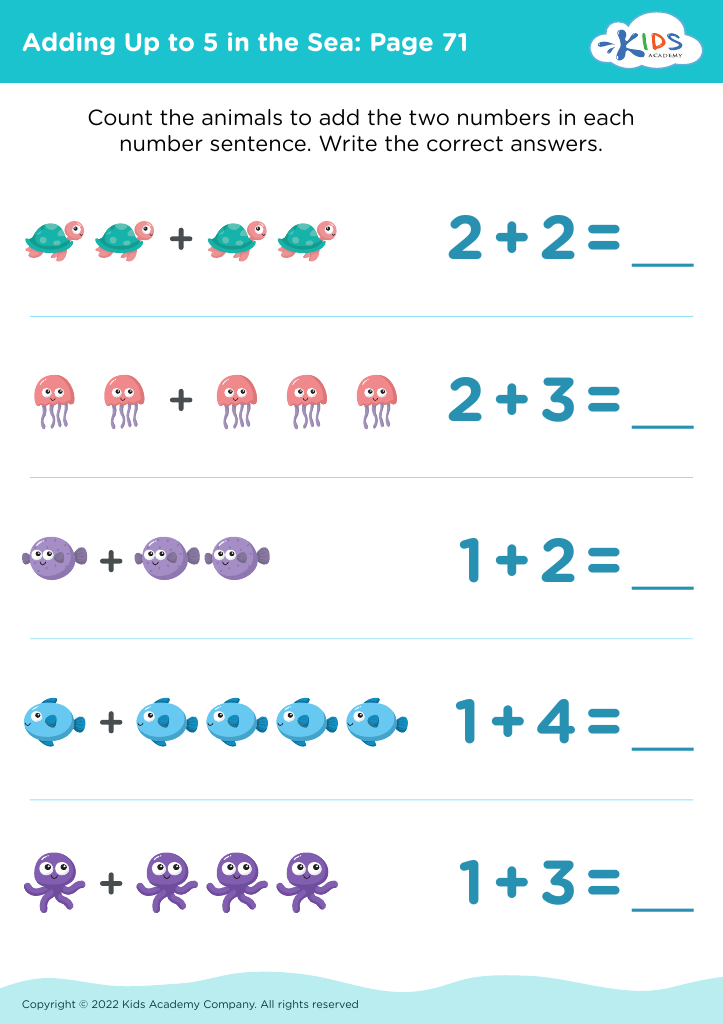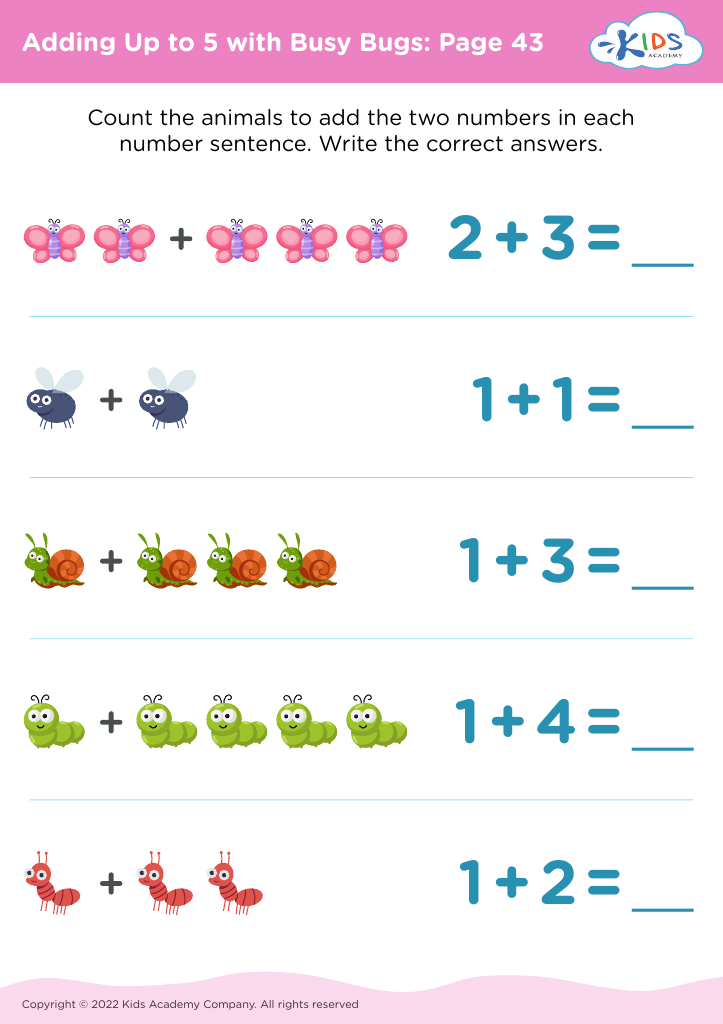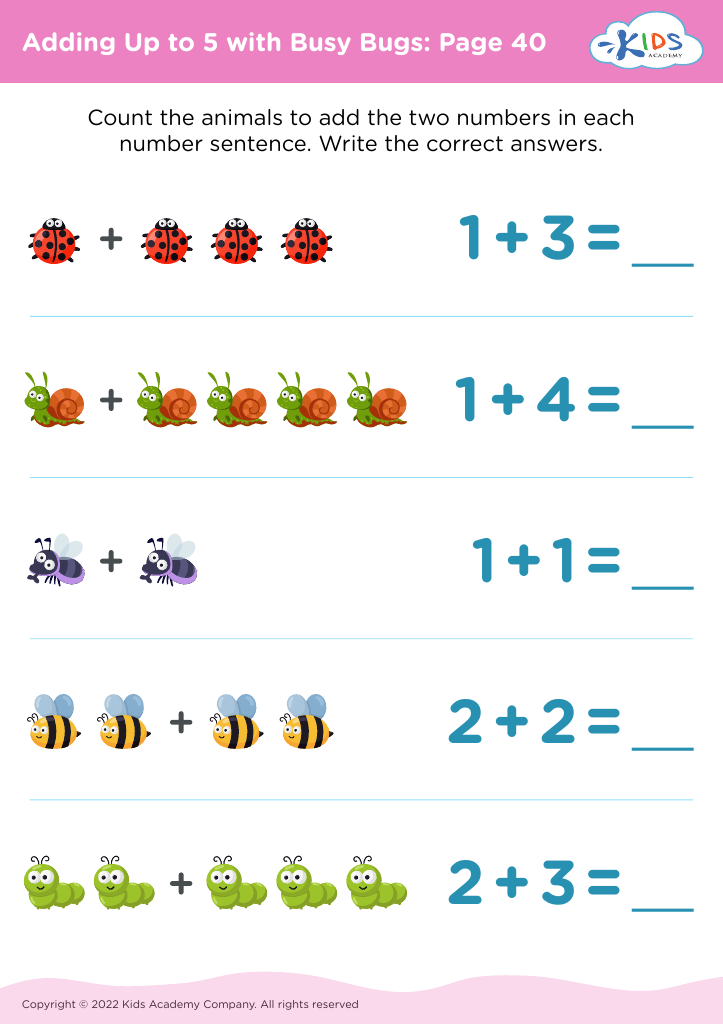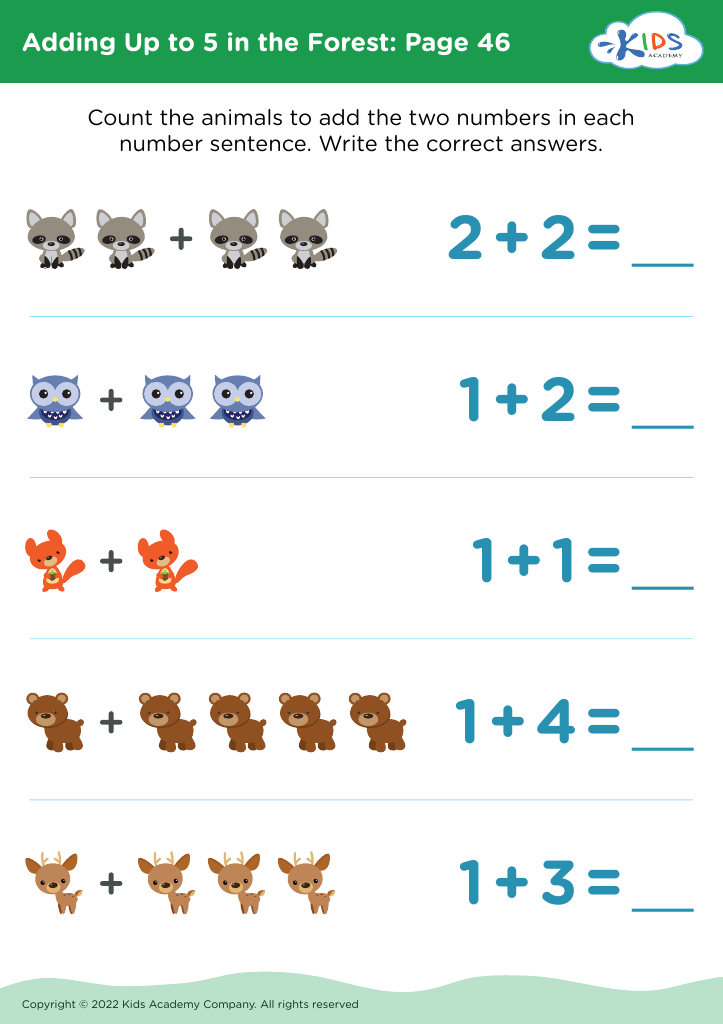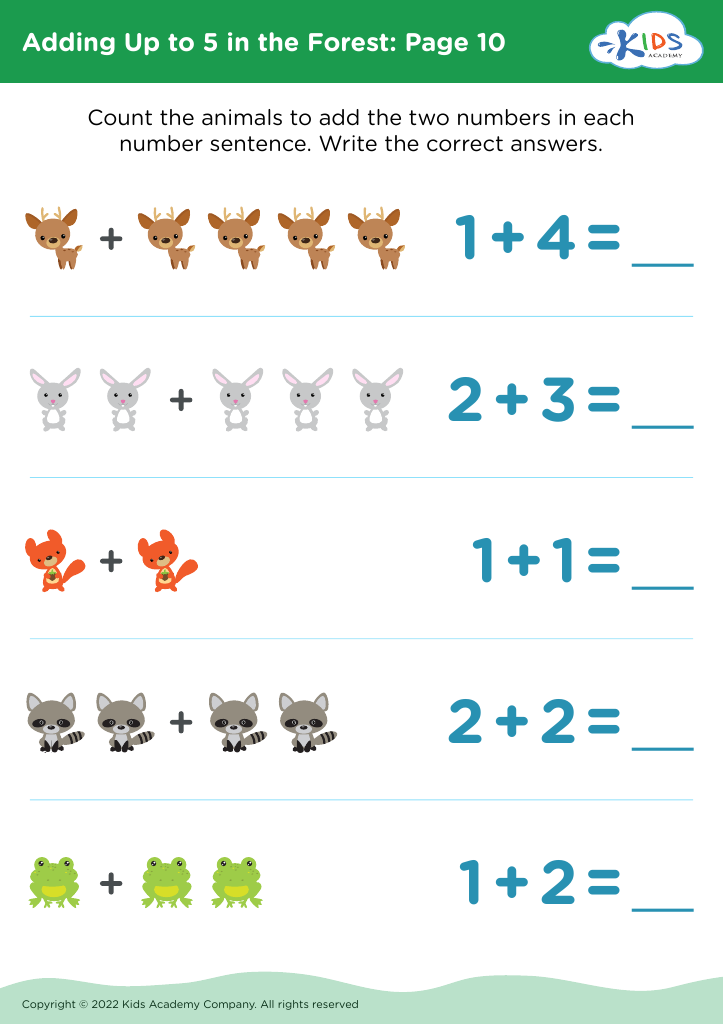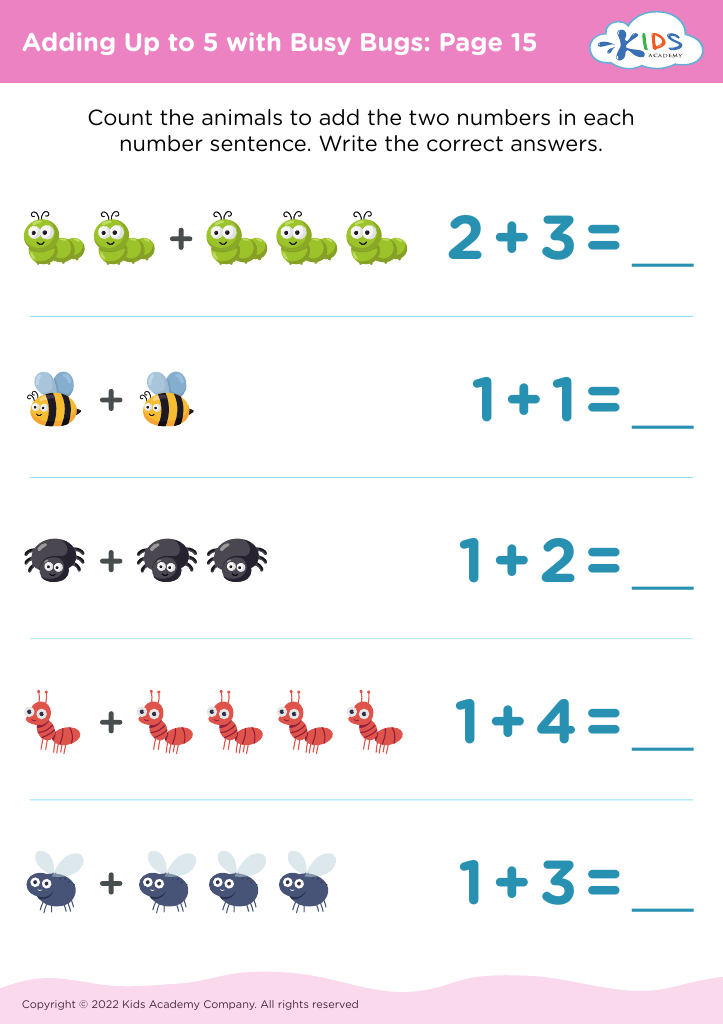Basic Math Skills Adding Up to 5 Worksheets for Ages 5-7
21 filtered results
-
From - To
Enhance your child's understanding of basic math with our "Adding Up to 5 Worksheets" designed specifically for ages 5-7. These engaging printables help young learners practice essential addition skills through fun, interactive exercises. Each worksheet offers a variety of visually appealing activities to keep kids motivated while honing their number sense and problem-solving abilities. By mastering these foundational concepts, children will build confidence in their math skills, setting a strong groundwork for future learning. Perfect for both classroom and at-home practice, these worksheets will make learning math an enjoyable experience. Start adding up the fun today!
Basic math skills, particularly the ability to add up to 5, are foundational for children aged 5-7, and parents and teachers should prioritize this learning for several reasons. First, mastering addition up to 5 lays the groundwork for more advanced math concepts. Understanding simple addition helps develop critical thinking and problem-solving skills essential in academic and everyday contexts.
Moreover, early numeracy plays a key role in building confidence in young learners. When children feel competent in basic math, they are more likely to participate actively in classroom activities and develop a positive attitude toward learning. Additionally, these skills enhance cognitive development, aiding in memory and concentration as they learn to associate numbers with physical quantities.
Furthermore, incorporating fun and engaging methods, like games and everyday activities, can strengthen the child's interest in math, making it a positive and enjoyable experience. Collaborative activities between parents and teachers can foster a more coherent learning environment, reinforcing skills both at home and in the classroom. Together, parents and teachers can nurture a child's mathematical foundation, ultimately setting them up for future academic success and nurturing a lifelong love for learning.
